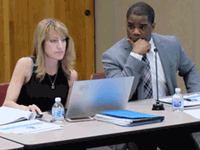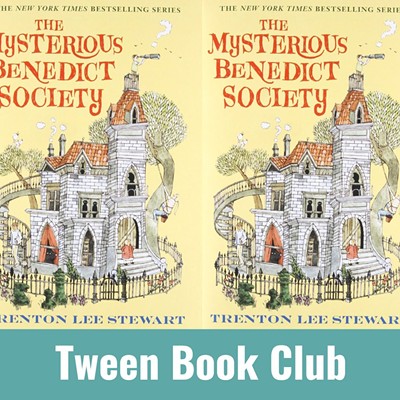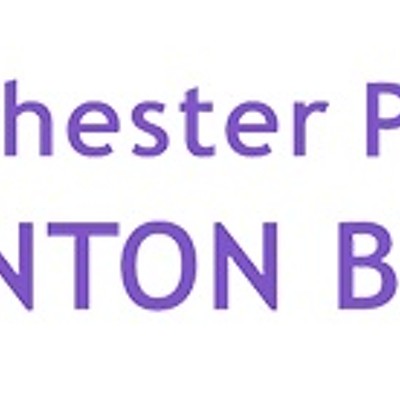[
{
"name": "500x250 Ad",
"insertPoint": "5",
"component": "15667920",
"parentWrapperClass": "",
"requiredCountToDisplay": "1"
}
]
“Lingering economic anger and anxiety. A rebellion against the existing political order. A rise of nationalism and a retreat from international entanglements.”
That was Wall Street Journal columnist Gerald Seib, writing in June about the Brexit vote in Britain. Add those conditions to the “tumultuous presidential campaign” raging then in the US, Seib wrote, and “it’s a description of global sentiment in the 1930’s, which increasingly looks like the best parallel to today’s environment.”
Seib noted that the consequences of the anxiety of the 1930’s were “cataclysmic,” and, he quickly added: “there’s little reason to think that’s where things are headed today.”
“Still,” he said, the parallels are close enough that we shouldn’t be surprised if the anxiety results in “a flirtation with unorthodox, perhaps even radical, political experiments.”
That was June. Now, of course, Americans have done more than flirt with an unorthodox, even radical, political experiment. We’re preparing to install Donald Trump in the White House.
Most of us are reluctant to draw comparisons to what’s happening now and what happened in the 1930’s: “Donald Trump isn’t Adolf Hitler.” And no; no, he isn’t. Nor is this the 1930’s. Nor is the United States Germany.
But since Trump’s campaign first began to gain a toehold, the similarities between his style of campaigning and the behavior of fascists have been so strong that it’s been hard not to at least raise an eyebrow. And the analyses by journalists and historians I’ve been reading over the past year haven’t made me feel any better.
I’ve been amazed at how many well-respected commentators (respected by me, anyway) – conservatives, moderates, and liberals – have drawn comparisons between Donald Trump’s growing popularity and that of fascists. Drawing comparisons, and, as the months passed, adding warnings.
In an interview published in Slate last February, Robert Paxton, history professor emeritus at Columbia University and an expert on fascism, spelled out what he saw as both the “echoes” and the “profound differences” between what the current presidential campaign and the rise of fascism in 1920’s-1930’s Germany and Italy.
One difference: Both Hitler and Mussolini, Paxton noted, railed against “aggressive individualism,” which they believed was the source of their country’s problems. Trump – and many Republicans – “have celebrated individualism to the absolute total extreme,” Paxton wrote.
Another major difference: Germany had just lost a devastating war and was hit by a severe depression. Italy “was on the brink of civil war.”
“We have serious problems,” Paxton wrote, “but there’s no objective conditions that come anywhere near the seriousness of what those countries were facing.”
Paxton was finding plenty of echoes, though. First: Trump’s campaign themes. “The use of ethnic stereotypes and exploitation of fear of foreigners is directly out of a fascist’s recipe book,” Paxton wrote. “‘Making the country great again’ sounds exactly like the fascist movements.”
Also similar: Trump’s focus on national decline, “one of the most prominent emotional states evoked in fascist discourse,” Paxton said. While that decline was real in Germany and Italy and isn’t in the US, many of Trump’s followers believe that it is.
Another echo: Trump’s “style and technique.” “He even looks like Mussolini in the way he sticks his lower jaw out,” Paxton wrote, “and also the bluster, the skill at sensing the mood of the crowd, the skillful use of media.”
Another: Neither Hitler nor Mussolini had real platforms, real programs that they stuck to when they got in power. Both men were inconsistent, Paxton wrote, “totally opportunistic.”
Then there’s this, from a Washington Post column in May by Brookings Senior Fellow Robert Kagan, titled “This Is How Fascism Comes to America”: “As Alexander Hamilton watched the French Revolution unfold, he feared in America what he saw play out in France – that the unleashing of popular passions would lead not to greater democracy but to the arrival of a tyrant, riding to power on the shoulders of the people.”
“This phenomenon has arisen in other democratic and quasi-democratic countries over the past century,” Kagan wrote, “and it has generally been called ‘fascism.’ Fascist movements, too, had no coherent ideology, no clear set of prescriptions for what ailed society.”
“Successful fascism was not about policies,” Kagan wrote, “but about the strongman, the leader (Il Duce, Der Fuhrer), in whom could be trusted the fate of the nation.”
Last month, Zeid Ra’ad al-Hussein, the United Nations High Commissioner for Human Rights, warned: “In some parts of Europe, and in the United States, anti-foreigner rhetoric full of unbridled vitriol and hatred is proliferating to a frightening degree, and is increasingly unchallenged.”
And, he said, “the rhetoric of fascism is no longer confined to a secret underworld of fascists, meeting in ill-lit clubs or on the ‘Deep Net.’ It is becoming part of normal daily discourse.”
And then in the New York Times last month, there was the opinion piece by Harvard University Professors Steven Levitsky and Daniel Ziblatt: “Is Donald Trump a Threat to Democracy?”
No democracy “as rich or as established as America’s” has ever collapsed, they wrote. “Yet past stability is no guarantee of democracy’s future survival.”
Based on their study of the rise and fall of democracies in Europe and Latin America, they listed some warning signs. The “clearest”: “the ascent of anti-democratic politicians into mainstream politics.”
Is Donald Trump anti-democratic? Levitsky and Ziblatt cited a litmus test designed by the late Yale sociology and political science professor, Juan J. Linz. Among the items on the list: “a failure to reject violence unambiguously, a readiness to curtail rivals’ civil liberties, and the denial of the legitimacy of elected governments.”
Trump, as Levitsky and Ziblatt say, meets all of those criteria. He actually encouraged violence at his campaign rallies. He threatened repeatedly to have Hillary Clinton put in jail. He insisted that the election process was rigged, and he seemed dead serious when he said he wasn’t sure whether he would accept the result of the election if he lost.
Normally, America’s democracy has provided plenty of checks against the misuse of power, even by someone like Donald Trump. But Levitsky and Ziblatt note that some of the most important of those checks have been weakened. Among them: “partisan self-restraint and fair play” by members of Congress, self-restraint by the president, and the watchdog influence of the media.
Democracies work best, Levitsky and Ziblatt wrote, “when unwritten rules of the game, known and respected by all players, ensure a minimum of civility and cooperation. Norms serve as the soft guardrails of democracy, preventing political competition from spiraling into a chaotic, no-holds-barred conflict.”
Members of both parties in Congress have become highly partisan, though – using the filibuster more often and risking the country’s credit rating and reputation for political points. Partisanship reached a high point with Republicans refusing to vote on President Obama’s nomination for the Supreme Court – “in essence,” as Levitsky and Ziblatt put it, “allowing the Republicans to steal a Supreme Court seat.”
And the latest: while many Senators were calling last month for an independent investigation of Russia’s reported involvement in this year’s presidential election, Republican Senator Mitch McConnell insisted that the (Republican-dominated) Senate committees are capable of doing what needs to be done.
As for the watchdog media: Trump is easily skating around it with his Tweets and other non-mainstream media.
Does all this add up to fascism? Are we in danger of losing our democratic system? I’m not as optimistic about our democracy’s strengths as some people are. I don’t have as much faith as some people do that members of Congress will come to their senses, provide checks and balances, and act together to protect the country. And I’m discouraged by the mindless, emotional trust that so many voters put in Donald Trump during the 2016 presidential campaign.
But I do still have faith, in America’s democratic system, and in the American public.
That said, history is important, and while history doesn’t necessarily repeat itself precisely, it offers lessons we should learn from.
One of those lessons, I think, is that democracies aren’t permanent gifts from God, protected in perpetuity against all attacks. Another: we should be alert to signs of weakness. Be on guard.
And so a warning, from Yale history professor Timothy Snyder’s long discussion on PBS’s Diane Rehm last month: ““Fascism is something that happened to people who were very similar to you and me.”
And from Brookings scholar Robert Kagan’s article back in May:
That was Wall Street Journal columnist Gerald Seib, writing in June about the Brexit vote in Britain. Add those conditions to the “tumultuous presidential campaign” raging then in the US, Seib wrote, and “it’s a description of global sentiment in the 1930’s, which increasingly looks like the best parallel to today’s environment.”
Seib noted that the consequences of the anxiety of the 1930’s were “cataclysmic,” and, he quickly added: “there’s little reason to think that’s where things are headed today.”
“Still,” he said, the parallels are close enough that we shouldn’t be surprised if the anxiety results in “a flirtation with unorthodox, perhaps even radical, political experiments.”
That was June. Now, of course, Americans have done more than flirt with an unorthodox, even radical, political experiment. We’re preparing to install Donald Trump in the White House.
Most of us are reluctant to draw comparisons to what’s happening now and what happened in the 1930’s: “Donald Trump isn’t Adolf Hitler.” And no; no, he isn’t. Nor is this the 1930’s. Nor is the United States Germany.
But since Trump’s campaign first began to gain a toehold, the similarities between his style of campaigning and the behavior of fascists have been so strong that it’s been hard not to at least raise an eyebrow. And the analyses by journalists and historians I’ve been reading over the past year haven’t made me feel any better.
I’ve been amazed at how many well-respected commentators (respected by me, anyway) – conservatives, moderates, and liberals – have drawn comparisons between Donald Trump’s growing popularity and that of fascists. Drawing comparisons, and, as the months passed, adding warnings.
In an interview published in Slate last February, Robert Paxton, history professor emeritus at Columbia University and an expert on fascism, spelled out what he saw as both the “echoes” and the “profound differences” between what the current presidential campaign and the rise of fascism in 1920’s-1930’s Germany and Italy.
One difference: Both Hitler and Mussolini, Paxton noted, railed against “aggressive individualism,” which they believed was the source of their country’s problems. Trump – and many Republicans – “have celebrated individualism to the absolute total extreme,” Paxton wrote.
Another major difference: Germany had just lost a devastating war and was hit by a severe depression. Italy “was on the brink of civil war.”
“We have serious problems,” Paxton wrote, “but there’s no objective conditions that come anywhere near the seriousness of what those countries were facing.”
Paxton was finding plenty of echoes, though. First: Trump’s campaign themes. “The use of ethnic stereotypes and exploitation of fear of foreigners is directly out of a fascist’s recipe book,” Paxton wrote. “‘Making the country great again’ sounds exactly like the fascist movements.”
Also similar: Trump’s focus on national decline, “one of the most prominent emotional states evoked in fascist discourse,” Paxton said. While that decline was real in Germany and Italy and isn’t in the US, many of Trump’s followers believe that it is.
Another echo: Trump’s “style and technique.” “He even looks like Mussolini in the way he sticks his lower jaw out,” Paxton wrote, “and also the bluster, the skill at sensing the mood of the crowd, the skillful use of media.”
Another: Neither Hitler nor Mussolini had real platforms, real programs that they stuck to when they got in power. Both men were inconsistent, Paxton wrote, “totally opportunistic.”
Then there’s this, from a Washington Post column in May by Brookings Senior Fellow Robert Kagan, titled “This Is How Fascism Comes to America”: “As Alexander Hamilton watched the French Revolution unfold, he feared in America what he saw play out in France – that the unleashing of popular passions would lead not to greater democracy but to the arrival of a tyrant, riding to power on the shoulders of the people.”
“This phenomenon has arisen in other democratic and quasi-democratic countries over the past century,” Kagan wrote, “and it has generally been called ‘fascism.’ Fascist movements, too, had no coherent ideology, no clear set of prescriptions for what ailed society.”
“Successful fascism was not about policies,” Kagan wrote, “but about the strongman, the leader (Il Duce, Der Fuhrer), in whom could be trusted the fate of the nation.”
Last month, Zeid Ra’ad al-Hussein, the United Nations High Commissioner for Human Rights, warned: “In some parts of Europe, and in the United States, anti-foreigner rhetoric full of unbridled vitriol and hatred is proliferating to a frightening degree, and is increasingly unchallenged.”
And, he said, “the rhetoric of fascism is no longer confined to a secret underworld of fascists, meeting in ill-lit clubs or on the ‘Deep Net.’ It is becoming part of normal daily discourse.”
And then in the New York Times last month, there was the opinion piece by Harvard University Professors Steven Levitsky and Daniel Ziblatt: “Is Donald Trump a Threat to Democracy?”
No democracy “as rich or as established as America’s” has ever collapsed, they wrote. “Yet past stability is no guarantee of democracy’s future survival.”
Based on their study of the rise and fall of democracies in Europe and Latin America, they listed some warning signs. The “clearest”: “the ascent of anti-democratic politicians into mainstream politics.”
Is Donald Trump anti-democratic? Levitsky and Ziblatt cited a litmus test designed by the late Yale sociology and political science professor, Juan J. Linz. Among the items on the list: “a failure to reject violence unambiguously, a readiness to curtail rivals’ civil liberties, and the denial of the legitimacy of elected governments.”
Trump, as Levitsky and Ziblatt say, meets all of those criteria. He actually encouraged violence at his campaign rallies. He threatened repeatedly to have Hillary Clinton put in jail. He insisted that the election process was rigged, and he seemed dead serious when he said he wasn’t sure whether he would accept the result of the election if he lost.
Normally, America’s democracy has provided plenty of checks against the misuse of power, even by someone like Donald Trump. But Levitsky and Ziblatt note that some of the most important of those checks have been weakened. Among them: “partisan self-restraint and fair play” by members of Congress, self-restraint by the president, and the watchdog influence of the media.
Democracies work best, Levitsky and Ziblatt wrote, “when unwritten rules of the game, known and respected by all players, ensure a minimum of civility and cooperation. Norms serve as the soft guardrails of democracy, preventing political competition from spiraling into a chaotic, no-holds-barred conflict.”
Members of both parties in Congress have become highly partisan, though – using the filibuster more often and risking the country’s credit rating and reputation for political points. Partisanship reached a high point with Republicans refusing to vote on President Obama’s nomination for the Supreme Court – “in essence,” as Levitsky and Ziblatt put it, “allowing the Republicans to steal a Supreme Court seat.”
And the latest: while many Senators were calling last month for an independent investigation of Russia’s reported involvement in this year’s presidential election, Republican Senator Mitch McConnell insisted that the (Republican-dominated) Senate committees are capable of doing what needs to be done.
As for the watchdog media: Trump is easily skating around it with his Tweets and other non-mainstream media.
Does all this add up to fascism? Are we in danger of losing our democratic system? I’m not as optimistic about our democracy’s strengths as some people are. I don’t have as much faith as some people do that members of Congress will come to their senses, provide checks and balances, and act together to protect the country. And I’m discouraged by the mindless, emotional trust that so many voters put in Donald Trump during the 2016 presidential campaign.
But I do still have faith, in America’s democratic system, and in the American public.
That said, history is important, and while history doesn’t necessarily repeat itself precisely, it offers lessons we should learn from.
One of those lessons, I think, is that democracies aren’t permanent gifts from God, protected in perpetuity against all attacks. Another: we should be alert to signs of weakness. Be on guard.
And so a warning, from Yale history professor Timothy Snyder’s long discussion on PBS’s Diane Rehm last month: ““Fascism is something that happened to people who were very similar to you and me.”
And from Brookings scholar Robert Kagan’s article back in May:
“This is how fascism comes to America, not with jackboots and salutes (although there have been salutes, and a whiff of violence) but with a television huckster, a phony billionaire, a textbook egomaniac ‘tapping into’ popular resentments and insecurities, and with an entire national political party – out of ambition or blind party loyalty, or simply out of fear – falling into line behind him.”
Speaking of...
-

Monroe County legislators take a second shot at redistricting
Mar 9, 2022 -

RoCo’s latest exhibit is a real artpocalypse
Mar 1, 2021 -

ART | ‘Trust, but verify’
Sep 4, 2020 - More »
Latest in Urban Journal
More by Mary Anna Towler
-

Police reform: advocates on what should come next
Oct 22, 2019 -

Court clears the way for Police Accountability referendum
Oct 17, 2019 -

Dade outlines initial actions on district deficit
Oct 9, 2019 - More »





